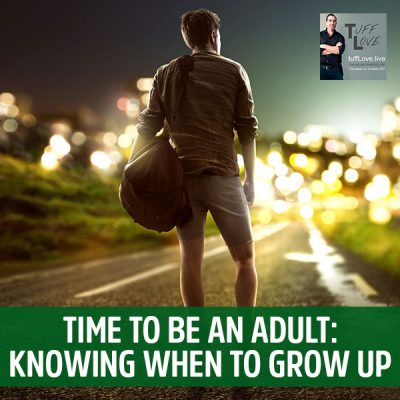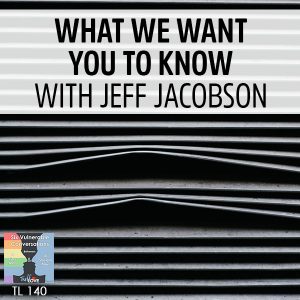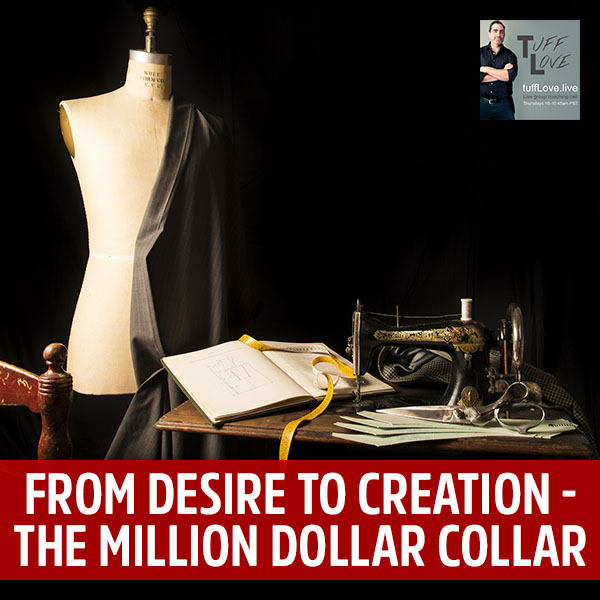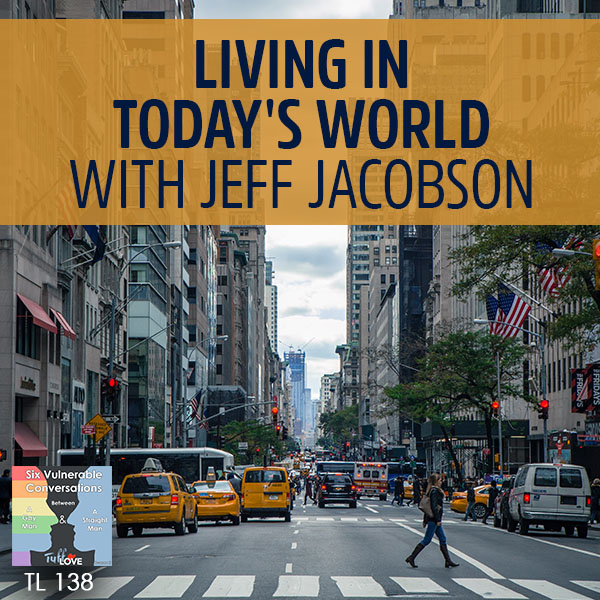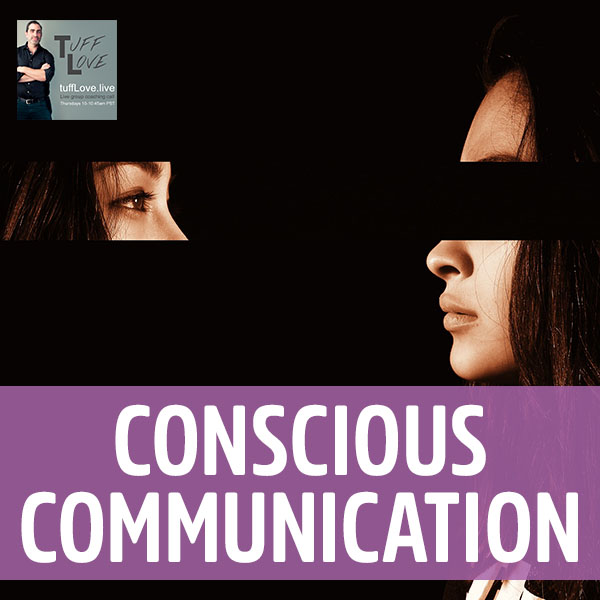
133: Conscious Communications
May 15, 2018
Back when I was pitching for Hay House, a mutual friend introduced me to Mary Shores who had just been published. We jumped on the phone and felt the deep connection and admiration for each other. It’s been so exciting to watch her book on my favorite topic, Conscious Communications, come out and make such an impact in the world. We’ll be chatting about the challenges in her life, how she moved through them and eliminated negative words such as “no,” “can’t,” and “unfortunately” from her vocabulary. Discover and learn from her spiritual journey as we go deeper into her history of the challenges she faced and the path she took from point A to point B as she transforms from someone who had nothing into a motivational speaker and a published author.
—
I’m very happy to welcome Mary Shores on to Tuff Love to talk about the concept of Conscious Communications. We go deeper into her history of the challenges she faced, abandonment, a child dying and divorce and her spiritual journey. The path she took from point A to point B, to go from someone who had nothing to a motivational speaker and author who published at Hay House, and the CEO of an eight-figure debt collecting business as a woman. I hope you enjoy it.
133: Conscious Communications
I’m very excited for another episode of Tuff Love with my friend, Mary Shores, talking about the concepts of Conscious Communications. Why have one conscious communication when you can have multiple? Thanks so much for participating. I want to welcome Mary on to the show.
Robert, it is so exciting to be here. I had the secret wish that you would someday ask me to be a guest on your show, and you did.
Let me tell the story of how I met Mary. We share a friend or a colleague who’s my podcast agent. She’s the one who gets me on to shows and does an amazing job, a woman named Kelly. She’s like, “There’s this person that you should meet who’s a Hay House author and went through the process. You guys should talk.” I was like, “I’m always willing to learn.” We started this conversation and it felt like we’d known each other for a long time in this expected fifteen to twenty-minute conversation that stretched to 45 minutes, almost close to an hour, as we a wax poetic and talked about things in common, etc. We’ve stayed in touch. Mary’s first book was released from Hay House and is doing exceptionally well. She’s working on her second book and she’s also a CEO of an eight-figure business and there’s a story on how she got there. I’m excited to have Mary on the show.
Thank you so much for a wonderful introduction.
Do you want to give us a story of how you got from point A to point B?I know it’s an interesting one and how you ended up the CEO of your company. I know it’s an unusual company, so maybe you can tell us a little story about your life and how you got where you are right now.
The story of my life would take awhile because I’m almost 45. I’m a CEO and there’ve been times in my life I’ve been extremely successful. There have been times that I had been in the complete opposite direction. First of all, as I start off this story for everyone to know, I’m okay. I’ve had one of these lives where especially early on, I was plagued with a lot of tragedy. After being abandoned at a very young age at three years old, I develop this imprint or this fear of abandonment that followed me throughout life. I was abandoned again at sixteen, so at sixteen years old, I was out on my own. I had no resources. I had no guidance in life. At sixteen, you’re so vulnerable and it’s important that you need this certain level of guidance to make it through and have someone show you the way. I didn’t have that ‘show me the way’ to get to adulthood.
I was able to inch my way through life and there’s a lot more to the story. I did start my first business at 24, which is a debt collection company. People always go like, “Let me hang up off this interview because I don’t want to listen to a debt collector,” but on the other hand, there’s this fascination of how did someone come from those circumstances and start their company and do it very well and in this industry of debt collections. I like to say that I own the most unique collection agency on the planet because my mission in life is to help people to feel good about paying their debt because having a debt is a psychological burden. What it does is it builds a barrier between people and then living the life of their dreams.
Why debt collecting. I could imagine, at 24, you had a blank slate of possibilities, especially coming from nothing at sixteen. What headed you to the direction of debt collecting? How did you graduate from to conscious debt collecting?
My parents owned a collection agency while I was growing up. I thought that made me an expert because when I was thirteen, I used to work in the debt collection company and my job was licking the envelopes and the stamps. You know how when you’re 24, you’re fearless, dumb, and naïve? I was all of those things. My mother had a lot of severe mental illness. My mother was a literally ripping people off. She was in a position that she was so far in over her head that she was taking advantage of me. She was making me believe that I was going to own this company, but she’s bipolar and she’s a pathological liar. After this person had abandoned me at three and then again at sixteen, when I was 21, she started making these promises to me that she was going to grandfather me into ownership of the company. That was all bullshit because what she wanted me to do is just work in her office for free as she was planning her getaway. She literally packed up her shit in a semi in the middle of the night and drove to Colorado without telling anyone. On one hand, I was left holding the bag but not really because my name wasn’t on anything. The nice thing is I had developed some relationships because I was essentially acting as an Office Manager at this company. I had developed some relationships and I said, “What happened to some of these clients?”
I used to literally break into the office every day after everything was officially closed and it was in a federal bankruptcy court and it was hundreds of thousands of dollars. I used to break in because I was obsessed with things like those little check machines where if you wrote a check at a grocery store, it would tell you whether you are a bad check person or something. I was wanting to keep those systems running because I knew it would have effect on people in the long run if there was no one to take their names out of the system. I used to break into the office and try to do what little I could to clean up the mess. I’d also applied for my own license so that I could become a collection agency. I took my very limited knowledge and I took the ten or so people that I had started relationships with. A lot of times people start these businesses out of a lot of ambition. The truth is that wasn’t my story, but I feel like the universe put me in this position to do what I was supposed to do because they always knew, ever since I was a young girl, that I wanted to be involved in business somehow some way. Somehow, I was exactly right where I was supposed to be, and I was figuring things out in a very Louise Hay fashion, figuring things out one day at a time.
It’s something Morgan, my lady, and I talk about is the concept of ancestral debt. The children take on the debt of their parents and their grandparents and past generations. Did you feel like you had a psychological or societal debt laid out by your mom ripping these people off or was it, “I could do some good in the world?” Do you have flavors of that?
At 23, 24, when I was going through this, I saw an opportunity and I believed in my small head that this would be a great career for me. At this point in life, I had already lost a child. When I was twenty, I had a daughter who passed away. She had severe brain damage, so I had already lived through a lot of impactful traumas. I didn’t have a lot of self-worth. I had worked at a bank. I got let go from that job. I guess I made a better boss and an employee, but I felt like a failure. When this was happening, I thought, “I probably won’t ever do much with this business and I might not make that much money, but at least I’ll be in control. At least I’ll have the freedom.” Even if I don’t make any money, it was my own thing.
I don’t know that I broke it down at that age, but I can tell you that as some clients found out that she had taken some money, the only way they would sign a contract with me was if I agreed to pay them back. I did pay back a lot of the clients’ money that she had embezzled. At 24, paying someone back $6,000 here or $3,000 there was huge to me. Sometimes we develop a character that’s much in the opposite direction of our parents. I had this very strong integrity inside of me that felt like I was doing the right thing and I wanted to pursue doing the right thing as much as I could. It was also an equal opportunity moment because I thought, “I could carve out a nice decent living for myself.”
You were 24, your mom had abandoned you twice, she packed up the RV in the middle of the night and left, you had lost a kid, you had d lost a job. It must have felt like the weight of the world was on your shoulders and there must have been an impact of all these things. What did you find inside of you to pull yourself up by those bootstraps? What did you do to stand up and say, “No, I’m not going to falter and quit. I’m going to move and have motion.” Do you remember what you told yourself or how you motivate yourself to keep going?
Now, in my 40s, I can totally have that kind of a conversation. I’ve told you many times that I find you and the things you’ve done very fascinating, but do you know how you get that feeling when it’s your own story, it doesn’t feel that fascinating because it’s the story you’ve lived? I’ve gone through a lot of that where now I’m breaking it down. I was in this documentary series called The Global Resilience Project where the woman was studying people for their bounce-back factor and she’s studying the commonalities of these 50 people that she chose all around the world. I felt completely unworthy to be part of this group because we’re talking about people who are amputees, who were doing things to save the world.
I’m still looking at myself going, “I don’t know that my story is that incredible,” but when I look back and I think, “I should’ve become a statistic. I should have become an addict. I should have become lots and lots of things, but I didn’t become any of those things.” If I had to boil it down, I would say I had a lot of energy when I was young. I was so naïve that I probably didn’t even realize how dire my circumstances were. I always had this attitude of taking action, always focusing on what I wanted, and daily was taking steps to get there. Also, I’ve come to realize that I have a mad, sickening work ethic. Whatever I’m doing, I want to do it to the best of my ability. I’m going to do that job, big or small, and I’m going to the best of the ability that I can.
In 2008, I got a divorce, and this seemed to be the thing that broke me. I’ve gone through these other things, but it wasn’t until I got divorced in 2008 that it completely broke me. That was the moment that I had the breakdown and that lasted two years. Building myself up afterwards. I’m much more aware after that crisis. I could tell you the things that I went through to get myself back up on top of my game again.
This show is pragmatic. This show is about the steps that people can use. It took you 2008 until you got to the point where all the feelings were finally released. 2008, you got divorced. Two years recovery. What were the steps you took to go from that spot to becoming a figure CEO to writing your book? What were the pragmatic steps you took?
I had a very loving marriage and I was happily married. My ex-husband went through something where he changed, and he later got diagnosed with bipolar. That’s very interesting considering that I grew up with this mother who’s bipolar and that somehow, I got myself in this same situation of abandonment again. At this point, I was already very successful, but my marriage was the rock of everything. I literally did not know how I was going to carry on. I was so shattered, and I realized now that I wasn’t just shattered because of the divorce, but all of those decades of everything that I had ever gone through was catching up with me in that moment and tearing me apart limb from limb, cell by cell. I was falling apart. At the very same month that I got divorced, my son got diagnosed with autism. I was in total breakdown mode for two years. I was so checked out. In my book, I call it as a functional catatonic. I was showing up at work, but I wasn’t doing any work. I could not contribute to my company in any way, shape or form.

Conscious Communication: I became obsessed with wanting to know what was on this other side of the veil. That was my entry point into that deep dive of spirituality.
After about two years, the first thing that happened was this feeling welled up inside of my body and this feeling was, “I know I’m going to do something different, but I don’t know what it is.” It was a very interesting feeling because it installed a little bit of hope into my mind. I clung on to that one little piece of hope and it started to bring me out of this funk. It started to bring me out of this breakdown that I was experiencing. Little by little, when I would get an opportunity, I would feel excited and alive again because I wasn’t feeling anything during that two-year period other than my life sucks. I was like a roller coaster of negativity and toxicity to anyone who was around me. To feel that little piece of hope again, I clung to that and I knew there was something else that was going to happen. After about another year, I realized that the communication strategy that I had developed for my business way back in 2005, which I called Words That Work, I realized that that was part of this journey that I was supposed to be on. I got an opportunity to do a training in that in healthcare.
This is all about how you communicate with another person, you validate them, and how you use this in business. I feel comfortable telling you this, but it’s like I was going through a very slow spiritual awakening. In fact, I didn’t have the language back then, but I remember telling people that I felt like the back of my head was opening up and I used to say I was getting these lightning downloads into my brain and then all of a sudden, I knew all this stuff that I didn’t know before. I didn’t know anything about spirituality in those days. I was more of a science nerd, so I call myself a neuro nerd. I was very into learning things like string theory and cosmology. When this thing started happening, I didn’t quite understand it. The only thing I knew was all of a sudden, I was a lot smarter. That’s a cool side effect.
I call it the muse. I call that the voice that pops into my head that was so brilliant I’m like, “This isn’t me. Where’s this coming from?” You have this concept of words. You went through your two years of dark night of the soul where you’re gathering, you’ve hit rock bottom. We’ve all had experiences with that, maybe not two years and maybe not to the extreme, but part of the human nature is when we get knocked out by life. Then there’s this little voice inside of ourselves that says it’s possible to climb out. It’s possible to have hope. It’s possible to feel something again. You heard that. Do you remember what you did once you heard that voice? To take those first steps back into being human again?
I felt happier. I did things that happier people do. I socialized for the right reasons and not just because I wanted to be at a party or drink or get drunk because I thought it would make me feel good. I took a deep dive into spirituality and I did that via this mad obsession with near death experiences. I would read every book that I could possibly read about someone who’d had a near-death experience. I wanted to know what is on the other side of that veil. I had this vision of myself that I was going to die. It’s interesting to recognize that this is a dark night of the soul, but I didn’t have that language. I literally thought, “I’m going to break down and I’m going to die.” I don’t know who’s going to take care of my children and I don’t know what’s going to happen to my business.
I thought I was losing my grip on reality. I became obsessed with wanting to know what was on this other side of the veil, and so that was my entry point into that deep dive of spirituality. I was feeding myself with all of this knowledge, and even though it sounds strange to study near death experiences, if you’ve ever done that or you ever hear the stories, it’s nothing but love. It’s nothing but enlightenment. It’s nothing but understanding that this body is a shell of a larger oversoul that is driving me through. I began to want to nourish that connection with my soul, my higher self, with the universe, whatever you choose to call it. I began to actively pursue healing myself.
Let’s move on to this concept of Words That Work. I know that eventually it led to your book, Conscious Communications. What are the Words That Work and could give us some theory about what that viewpoint is?
Words That Work is a communication strategy that I developed. It’s very useful in business because I feel like when you call customer service, it’s typically a very frustrating experience for one reason or another. You have an expectation that your needs are going to be met and at some point, it’s like this insanity breakdown and we’re very frustrated with whoever is on that line. I started to study words and the nervous system and a lot of this had to do with my son having autism because I began to figure out what words were triggering people. There are three rules and there are three steps to Words That Work. The rules are, “Do not say list,” which is a list of words that are literally banned from my office. These words are, “No, not, can’t, won’t, however, and unfortunately.”
It’s a challenge to run a business without saying those words. What you want to do is you want to replace those words with what I call the Words That Work phrases, which is all about, and this is the third rule, always tell people what you can do instead of telling them what you can’t do. For example, I was teaching a workshop and there was a lady there that worked in the financial industry. I don’t know what the situation was, but somebody wanted fees reduced on their account. We all are going to ask for that to be done. It was significant, like $30,000 in fees. She was telling him, “I understand. Unfortunately, we cannot remove these fees, however we can give you a discount on them if you pay this amount by this date. “
You take a phrase like that and what’s happening in the body is every time that customer is hearing, “No, unfortunately,” what’s happening is it’s triggering their fight or flight. When it’s triggering their fight or flight, it’s causing their adrenaline and cortisol to increase in their body. When your adrenaline and cortisol is increasing, what’s happening is you can’t activate the problem-solving areas of your brain while you’re in fight or flight. Understanding that there are these words that are going to activate the parasympathetic nervous system, which is the opposite, the rest and digest. This is what I coached her to say, “I can certainly understand why this is important to you. The great news is if you pay this amount of the balanced by June first, I’ll be able to reduce the fees by $10,000.” You can feel how energetically that phrase is better connecting to the customer.
I’ve got all of this research that shows when you use these validation phrases, what’s happening is there’s three steps to Words That Work. The first step is validate. The second step is plant a seed of happiness. The third step is using an action statement. When you take time to validate the customer’s concerns, you’re building rapport and you’re building a certain level of trust. It’s like in the human mind, our brain has this need as humans. We all have a need to be heard and to be understood. Do you remember that video? It’s not about the nail. I always use that in my trainings because the guy is trying to tell her, “Take the nail out of your head.” She just wants him to say, “That must be really hard.”
As humans, we have this need to be heard and we can’t move on to the next step of the process until we have that check mark in our mind that says, “Yes, I’ve been hurt. I can move on.” That’s the first step. The second step is plant the seed of happiness, which is something saying something reassuring that builds confidence in the customer. It goes like, “I assure you I can take care of this” or “I’m going to make this right for you” or “I’m confident we can resolve this.” It’s just a few little words that bridge you from the validation to the action statement, which is all about telling the customer what you will do for them instead of what you will not do for them. This is simple stuff.
Through my relationship with Morgan, I’ve learned the power of validation because I’m this action-oriented male. I see a problem, I fix the problem. Kill the dragon, bury the dragon. Morgan’s like, “No, I just want you to validate my feelings.” It’s been this whole education of slowing down to not go into action because often, her feelings might be triggering feelings in myself I don’t want to feel. There is a definite empowerment for it. The word ‘no’ is a power word in today’s interpersonal relating in terms of sexuality and man-woman dynamics. Does this not use of the word no translate into the interpersonal or is this more niched to how to have successful business conversations?
To give clarity around that, the words that work communications strategy is most applicable in business situations and how I translated this to personal development that do not say this part turned into the negative language that we apply to ourselves. That crazy voice in your head, that roommate that lives with you that constantly tells you how much you suck, in Conscious Communications, the way that I translated all of this into personal development strategy was instead of having this do-not-say list, it’s you have this personal do-not-say list of things you will not say to yourself anymore.
Specifically, in terms of sexuality, if a guy says, “Do you want to do this” or a person says, “Do you want to do this?” No is a perfectly acceptable answer. The translation is in the inner dialog with ourselves. What words do not recommend we speak to ourselves?
It’s a dialogue that would be for every single person. One of my own personal stories, the negative self-talk looks different for everyone. I know that as a mother, there’s times that, and I still continued to do this today, where I will rip myself apart for things that I’ve done that are mistakes that I’ve made with my children. They could be the littlest, tiniest things, like I didn’t leave their snack out or I didn’t notice this thing that was going on with them. The way this ties back to debt is that before I developed Words That Work, I was using a sales approach in debt collections and it didn’t work. The reason that the sales approach did not work is because although sales is a much more humane way to get someone to pay a debt, it failed because it didn’t address the real problem, which is the shame and the unworthiness that people feel when they have a debt.
Because of my years of abandonment, I have this foundation of shame and worthiness. My self-talk is going to reflect that shame and unworthiness back to me like, “You’re no good. No one will ever love you.” For somebody else, it might be centered around success. For someone else, it could be centered around a weight problem that they maybe have or if they have an addiction problem. What happens is that negative self-talk ends up creating a barrier belief in our subconscious. It will stop us dead in our tracks from doing the things that we want to do in life. My reiki goddess therapists was saying, “If you imagine that self-talk as a human being sitting right next to you saying those things, that person would be psychotic because no other human being would say these things to you.” Changing those words is a process. Part of that first step is becoming aware of them.
My favorite adjustment has been changing the word mistake to miscue. This one little switch in my mind, a mistake and all the charge around mistakes and the connotation of me as a man into miscue into like, “I didn’t quite hit that right where I wanted to.” The longevity of this one small three or four letters in the same word and the feeling behind it. If a friend talked to you the way you talk to yourself, we would lose that friend in a second, but we allow it. We allow that negative self-talk. Do you use these Words That Work technique with your children when they ask you for things?
I can tell you that my staff, who’s much more talented than I am, they all use it with their children and they have had amazing results using this type of dialogue. I had a situation with my son, he’s sixteen and he has a car now. He doesn’t get to see his dad very often and he said to me, “I want to go see dad on Wednesday night.” I had to tell him no because his dad lives 30 minutes away and my son had to be up at 4:30 AM to take a field trip the next day. I had to say he can’t go and then he was mad at me for a while. I said, “I said I can completely understand that you want to see your dad and you’ve had to work the last couple of weekends that you would get to see him. The really good news is you’ve got two weeks left of school and as soon as school’s out, you’ll be able to go. Especially now that you have a car, you’ll be able to go over there anytime you want. Even if you just went over for a couple of hours, it doesn’t have to be a spend the night thing, but you’ve got all of this time to look forward to.”
What it did for our relationship, my son and I, it built that connection in a way that I was no longer the bad guy. It gave me an opportunity to validate that he misses his father and at the same time explain to him and I said, “It’s difficult for me to be the one that has to not give you what you want and I’m doing it for good reason. I don’t want you on the road. I don’t want you driving on the highway at 4:30 AM, and as a driver, you’re not ready for that.” These are the hard decisions that mothers have to make. They don’t always make you happy, but in the end, it is the right thing. He understood that.
Another common theme is the concept of collaboration versus antagonism. We’re ‘no, not, can’t, won’t unfortunately’ is antagonistic separation or even power dynamic-based words and how the word you’re using, it sounds like it’s creating a teamwork. It’s creating a collaboration aspect of every challenge, which I really liked.
When he feels like I care about his feelings, then he can be more open to the solution that I’m providing because it’s important that you’re not just saying no without providing an alternative. I said, “School’s going to be out in two weeks. You’re going to be able to spend some extra time with him then.”
I want to talk about this concept of being a female CEO, especially with my naïve impression of the debt collection, it would be male dominated. What’s been your experience as a female CEO? What are the challenges you’re facing, and can you give any advice to any women who are looking to head into management level positions and some things you might want to share?
I love talking about that because one of the things that I find very fascinating with you is your history and your study of the masculine and feminine. I’m going to start with talking about my own story and what I noticed very early on. It’s a very male dominated industry and my competitors are male. As a matter of fact, there were males in the industry that we’re trying to block me from getting a license because they had buddies that were here in my town and they didn’t want me to create competition for their friends. Even up at levels that I didn’t even understand at 24, I had people trying to stop me from starting my company and they were males.
I lived through all of that, but the deeper impact is this hard driving person that I became and that more and more I had to bury my femininity. What was happening was my masculine traits were getting overfed. I talked about what happened with my divorce. If I’m being really honest, I know that I contributed to things. I know that I know that on a visceral instinctual level, I’d probably change the feelings that my husband was having about me because I wasn’t in necessarily a position of where I needed him, and I was making more money than him by over twice as much. I became very bossy. I became that aggressive person and it took me a long time to realize it. This comes from things like constantly being in this low-level fight or flight.
Every day I’m making decisions, I’m dealing with court cases, I’m dealing with lawyers and people yelling and screaming at me on the phone over their debt and having to manage people, having to manage contracts, having to manage clients. Little by little, it buried my femininity and I became reactive and a snappy person. A lot of it, too, was that past traumas that I had that I didn’t realize not only was I in this low-level fight or flight, but I was also in this low-level of PTSD at the same time. It wasn’t until years after my divorce and I was having struggles in relationships, this has been a couple of years ago now, but I felt like I was developing a pattern of getting with unavailable men.
I know a lot of other female CEOs that also feel like their pattern is they meet and they date unavailable men. We know the concept, “You attract what you are,” but myself and other females that I knew, we had a hard time viewing ourselves as unavailable because we felt like we were the givers, like, “How could I be the unavailable one when I’m the one that is always offering to cook the dinner or to make the arrangements or whatever that we were doing?” By doing that, we’re not really being available because we’re not available to receive. We’re not allowing his masculinity to come out and for us to be the receiver of pleasure for our bodies to be the receptive way that it’s supposed to be because we were trying to take charge. We thought we were doing that for good, but it was having this negative reaction.
That’s one part of it. Then the other part of it is empowerment for women has been a big buzzword in the last years. It’s interesting as I have shifted my perception. In every decade of life, you go through these evolutions. In my twenties, I was super ambitious and hard-working and into my work and didn’t let anything bother me. In my 30s, it was my breakdown because I got divorced at 34, but there’s also still this very driven, “I wanted the money, I wanted the power. I wanted to be on the top, I want it to be viewed as an expert.” It was all about ego. Then I had my breakdown and now that I’m in my 40s, I look at things like empowerment and I realize that it’s this buzzword and if I peel back the layers, I would say that empowerment is this feeling from the inside. When you understand inside, outside, backwards and forwards what it is you’re doing, you’re fully able to tap into your intuition and you have this confidence from the inside out that is driving you to the next thing.

Conscious Communication: A disempowered state of being is when you don’t know what to do. It’s when you haven’t taken the time to invest in yourself.
You’ve got this clarity about it. When you do that, and you have this level of empowerment, everything you manifest from that place of empowerment is going to manifest stronger, faster, better, more impactful, and longer-lasting. Disempowerment is very much the opposite. A disempowered state of being is when you don’t know what to do. It’s when you haven’t taken the time to invest in yourself. You don’t know what’s going on. Disempowerment, to me, feels like when you’re swirling in that chaos and uncertainty of life where things are constantly feeling like they’re happening to you and everything you manifest from a place of disempowerment is going to be weak, is going to be stressful. It’s like when you’re trudging through that mud and you just can’t make it work or something seems like it’s going to work and then it falls apart.
My advice to especially young women that are getting into business is to say my own journey through life has not been graceful. As a matter of fact, it’s been extremely uncomfortable at times. When people tell you to enjoy the journey, it’s because everything that’s happening is building this character and you’re going to get to where you need to be. One way or another, it’s going to happen for you. I hate to blame society, but I do. I grew up in the ‘80s. I was the first-generation latch-key kid. I was starting businesses in middle school and all my life, I was told that that’s where my value lied. That’s how you’re valuable as a person. I don’t remember anyone telling me that I was beautiful, that I could give value by nurturing people and children. When things happen to you, my response was what I learned.
Growing up in the ‘80s, my favorite television show was Designing Women. It was these five women that owned a business together and that’s what I idolized. There were all the successful power women of the ‘80s and ‘90s and that’s what I wanted to be, and it was completely absurd. I used to say I never was given the choice because it wasn’t an acceptable thing. When I’m growing up, it’s you grow up, you get the degree, you get the job, you get the career, you get the marriage, you buy the house, you have the children, you get the divorce, you have your breakdown, and that’s what all my friends have went through. This new generation, they’re so great because they don’t buy into that.
I’ve said many of those similar words, the whole pathway. The millennials are going to totally etch a sketch a lot of the things we want. There’s a great book called The End of Men by Hanna Rosin, which is describing women empowerment. Women making more than money than men, jobs in manufacturing dropping. There’s a whole change in dynamics to our society. You took on the role that you learned from men, designing women where women being women, but more acting like men. Will this next generation find the balance between the masculine feminine, where women can be in power from a feminine point of view, be accepted, be part of the club, and do the things that they do in the world?
One of the things that makes me feel very connected to a man, and this does happen occasionally for me, I will meet a man and he might say something to me almost as if he looks at me and he thinks, “I’m so attracted to this power that you have from inside out.” It’s very different than a man that looks at me and goes, “I don’t want to compete with her,” and brings up that intimidation word with a capital I that all successful women love to hear.
That’s men and there’s a call to men. In my research, I’m seeing men are really giving up. What they’re doing is they see women empowerment, instead of rising up and saying, “How do I improve myself?” A lot of them are like, “Screw it,” going into the video games, going to the porn, going to the sex dolls. There’s a lot of statistics around that as well. It’s for men to step up and say, “I want to meet women in their expansion because in meeting women in their expansion will allow the man to expand as well.” Then we have two people in an egalitarian relationship of equal power.
I used to say these things when I was younger, especially after I was divorced, and I didn’t feel like I was understood. I would even say this to men, “Understand that I live in the Midwest, so it’s not as open-minded.” I would say to people, “I feel like I’m the last woman on earth who wants to be this source of inspiration to my man. I want him to feel inspired every day to become the best version of himself that he can be. Not because he has to, but because he wants to know, because there’s something about me that somehow triggers that in him.” I also felt like women are such a gift to men. I don’t mean that in a possession kind of way. This language got me in trouble and got me in a lot of hot water.
“You want to be subservient to a man,” I wasn’t saying anything like that. I was saying that I look at myself as this gift that I can give to a man and my sexuality is a gift. My intuition is a gift. My ability to be his rock no matter what is also a gift to him. In exchange, it inspires the man to want to provide to that part of them that wells up, that makes them the natural provider, the natural protector. The problem was I wanted all these things, but I was never allowing myself to receive them.
You do have a special offer that you want to make to our audience if you want to speak about your Daily Desires.
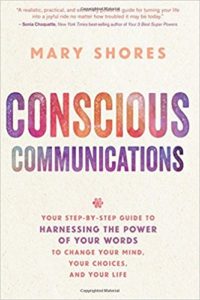
Conscious Communication: Your Step-By-Step Guide To Harnessing The Power of Your Words to Change Your Mind, Your Choices, and Your Life
I’ve a free download, if anybody wants it, what you get is the first chapter of my book, Conscious Communications. I would love for you all to check that out because you might like it and buy my book. Secondly along with that, you get my daily Desires Diary, which is a journal page. It’s a daily practice that is beneficial to stop every day and just name three things that you’re grateful for, three of your proudest moments for the day, and three things that you desire. In Conscious Communications, it’s all about using your subconscious mind to program yourself to get you to where you want to go in life. This daily Desires Diary is a simple and easy daily ritual you can have with yourself to get to get those positive seeds planted. Just like step two in Words That Work, plant that positive seed.
How do people find that? What’s the easiest way to find it?
Anybody who wants to connect with me and join my Facebook group, it’s called Fearless Ambition. We send it out to you right away.
Thank you so much for coming on the show. It’s an absolute pleasure to know you and the adventures you’re going on. I know our paths will cross in the future, so thank you so much for being part of Tuff Love.
Thank you, Robert.
For more shows, please visit us at TuffLove.live. Until then, thanks so much for joining us. Really grateful. Enjoy. Go forth. Look at your words. Look how they’re creating collaborative communication rather than antagonistic. Good luck with all that you desire. Thanks so much.
Thank you so much, Mary, for quite the extraordinary show. I feel like we’re on similar paths and it’s always great to see another teacher on the road. For more shows, please visit TuffLove.live. If you’d be so inclined to give us a little loving, please go to Stitcher, iTunes or your favorite podcast app. Give us some stars, give us a review. They help, trust me. Until then, go get some nookie. I love you.
Resources mentioned:
- Mary Shores
- Conscious Communications
- The Global Resilience Project
- Words That Work
- The End of Men
- Desires Diary
- Fearless Ambition – Facebook group
- Tuff Love on Stitcher
- Tuff Love on iTunes
About Mary Shores
 Mary Shores is the author of Conscious Communications: A Step-by-Step Guide to Harnessing the Power of Your Words to Change Your Mind, Your Choices, and Your Life. Recognized as a leader of innovative thought, she has spent over a decade teaching businesses and individuals how to identify their goals, create new ways of thinking, and take action to create meaningful results. Mary travels across the nation giving lectures and teaching courses, and has been featured on local and national radio and television shows, podcasts, and blogs.
Mary Shores is the author of Conscious Communications: A Step-by-Step Guide to Harnessing the Power of Your Words to Change Your Mind, Your Choices, and Your Life. Recognized as a leader of innovative thought, she has spent over a decade teaching businesses and individuals how to identify their goals, create new ways of thinking, and take action to create meaningful results. Mary travels across the nation giving lectures and teaching courses, and has been featured on local and national radio and television shows, podcasts, and blogs.
Podcast: Play in new window | Download




